
An interview with a Performing Arts/ Acting Lecturer
An interview with a Performing Arts / Acting Lecturer
I sat down for a chat with Senior Lecturer in Performing Arts Dr Catriona Craig. It was great talking to her, and she had some very interesting insights.
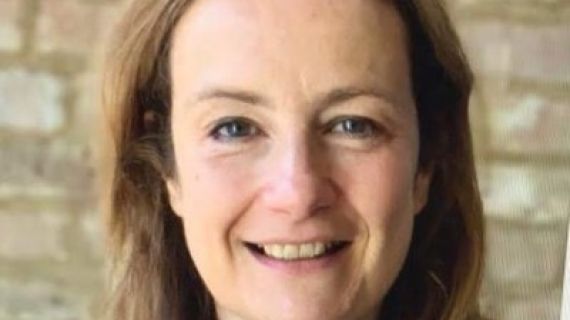
Can you tell us a bit about your career?
‘At university I studied Drama and Theatre Studies. Back then Film and Theatre were kept very separate, so I never thought I would work in television. I worked at the Edinburgh Festival during my studies, then I got my first job as a production assistant through a contact there.
I got a job in BBC Comedy and was there for five years working full-time. But I missed the small-scale style of working in theatre, I wanted to do a bit of both, so I became freelance. I was script editing for TV and directing touring theatre. Following this I ended up specialising in Dramaturgy (working with writers on productions). It’s really hard to say what shaped my career. I look back at a lot of it and think, how did that happen?’
What do you think you can give to students from your experiences to help them progress into a career?
‘Self-belief springs to mind. Not that it’s written in any brief or in education but ultimately a lot of what it comes down to is the push and the confidence in your own skills.
When I look back on moments in my life where I missed an opportunity it's mostly because someone else was more confident to get in there first. When I think of these moments it really annoys me, and I want to help people in this way. I really like to make people see the skills that they have and make them feel confident in taking them out into the world.’
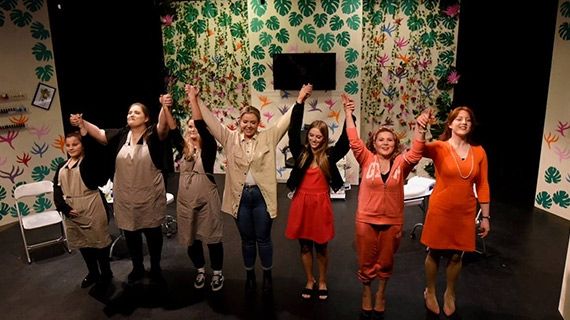
How does the course engage with employability skills? Any industry links?
‘Myself and Magdalena (course lecturer) are both industry professionals having worked outside of teaching in recent years, Jem (course leader) has years of teaching experience under his belt, as well as making his own work, and we like bringing in companies and industry professionals for workshops and talks.
We have an industry panel every year where professionals share their insights and experiences in addition to delivering workshops. We also plan trips to performances and festivals, which we are planning more of in the future so that students get to see a wide range of work as possible.’
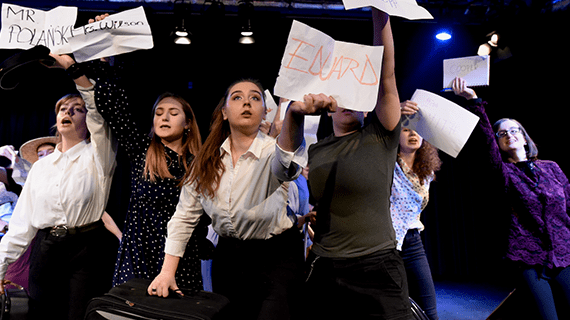
How do you think the course prepares students for working?
‘We try to stay really current with technology because we have to understand that theatre and film are interconnected. We want students to keep their creative thinking up to date and be able to use this to their advantage.’
‘Transferable skills - understanding that the way you worked with five people on a small film in your degree can help you work in a different context. Communication, problem solving, working together, dealing with pressure. All of these things can be used to help gain employment in different settings.’
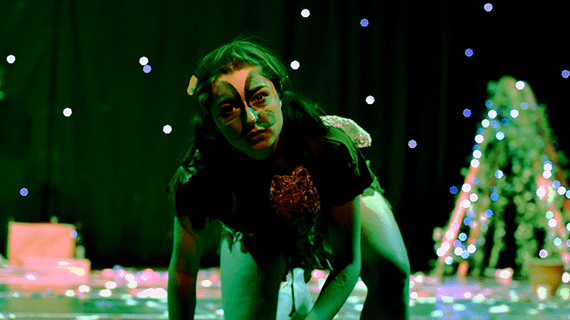
What kind of careers could students possibly progress into following the completion of their degree?
‘Just to give a few examples: acting professionally, upcoming creative roles in performing arts, for example we have graduates doing creative programming in theatre companies, playwriting, producing in theatre, producing in film, filmmaking, specialising in acting style (classical for example), teaching.’
Any teaching/career highlights you would like to talk about?
‘The highlight of the teaching year is always the dissertation performances. They are individual pieces of work and you get to see a person express themselves. You see a student produce an independent and unique performance that nobody else can make. It’s so lovely to see and you will often see staff getting emotional but it's because it is always a reflection of that person's creative expression and we have seen them develop over the course of the three years and really produce something that their heart is in at the end of it.’
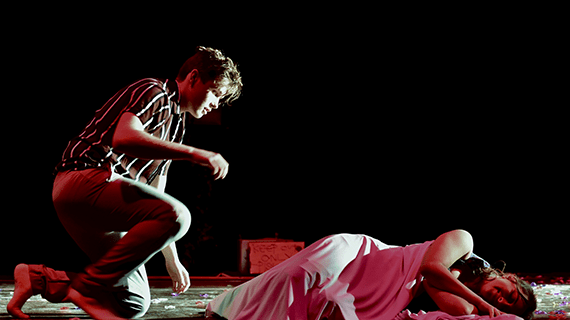
Any final thoughts to add?
‘My closing point would be, applying to university can be scary and it’s important to remember there is always a human being on the end of the line to answer the phone or an email for any information or help that you need.